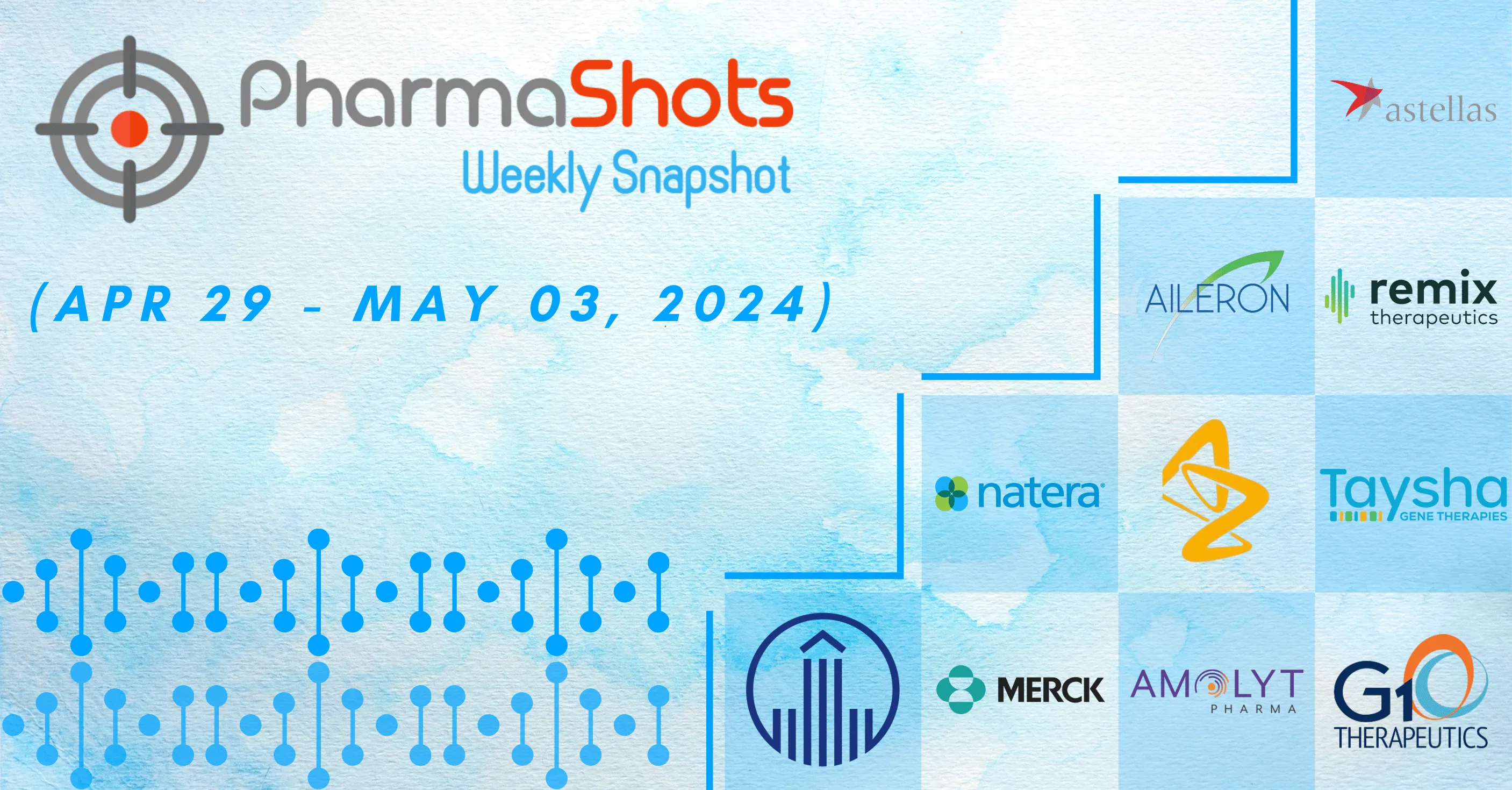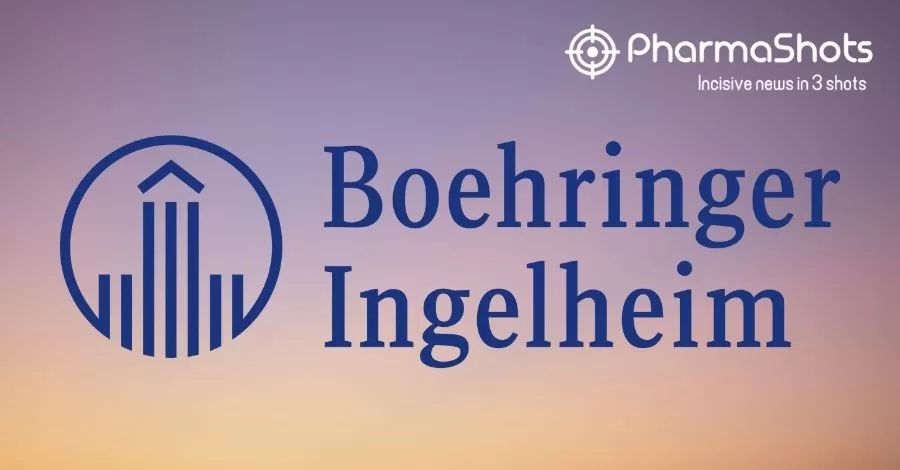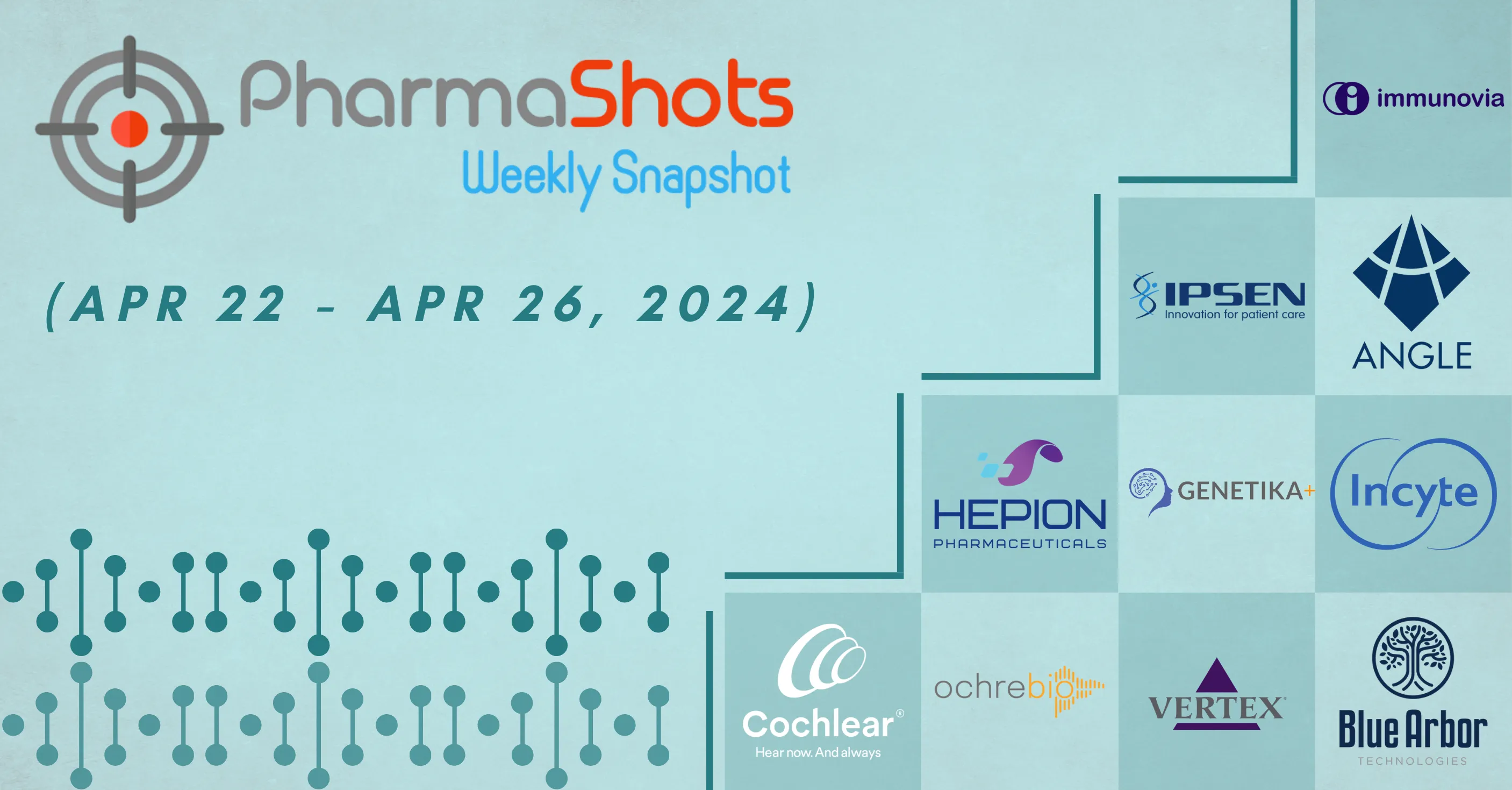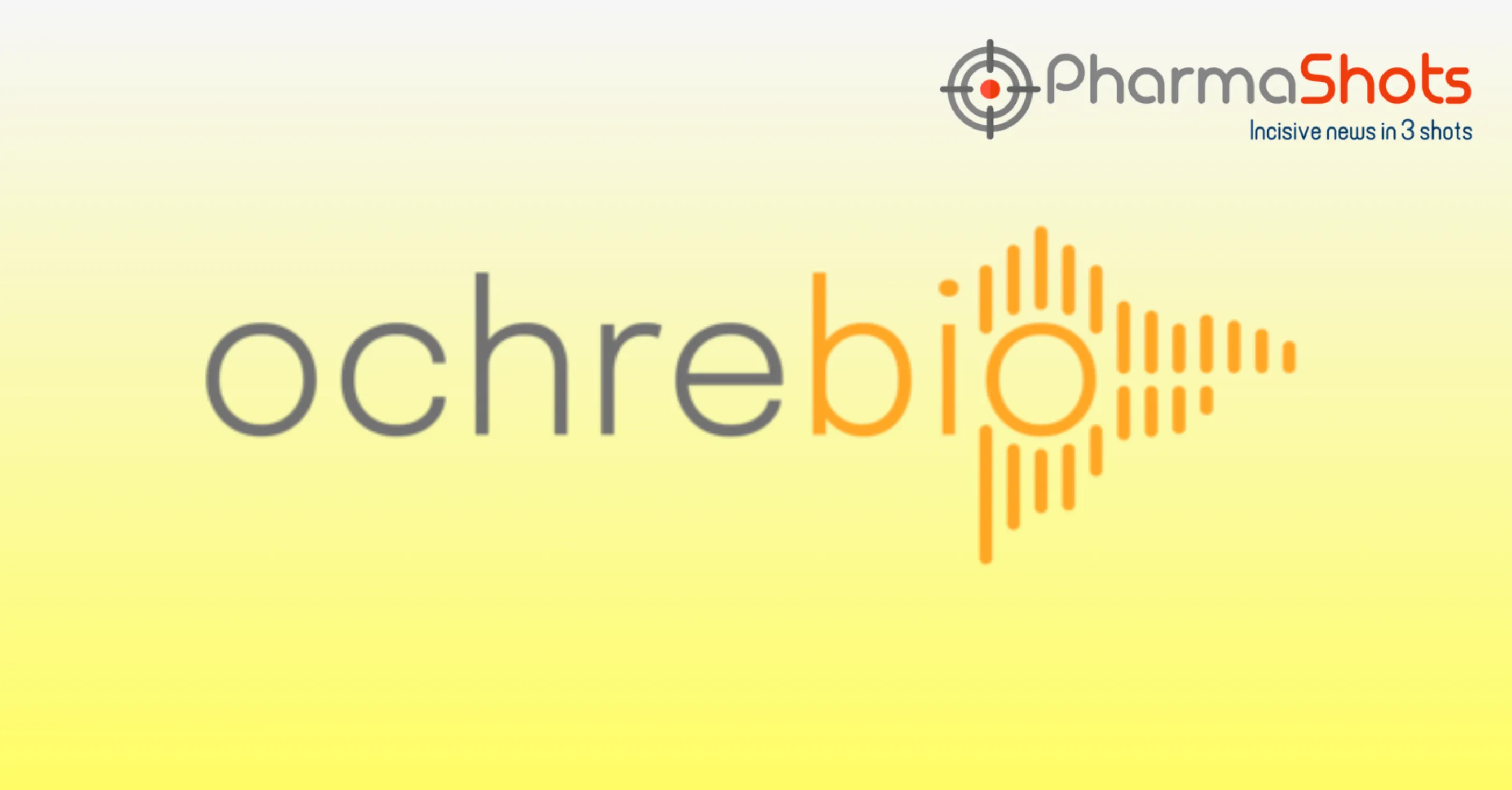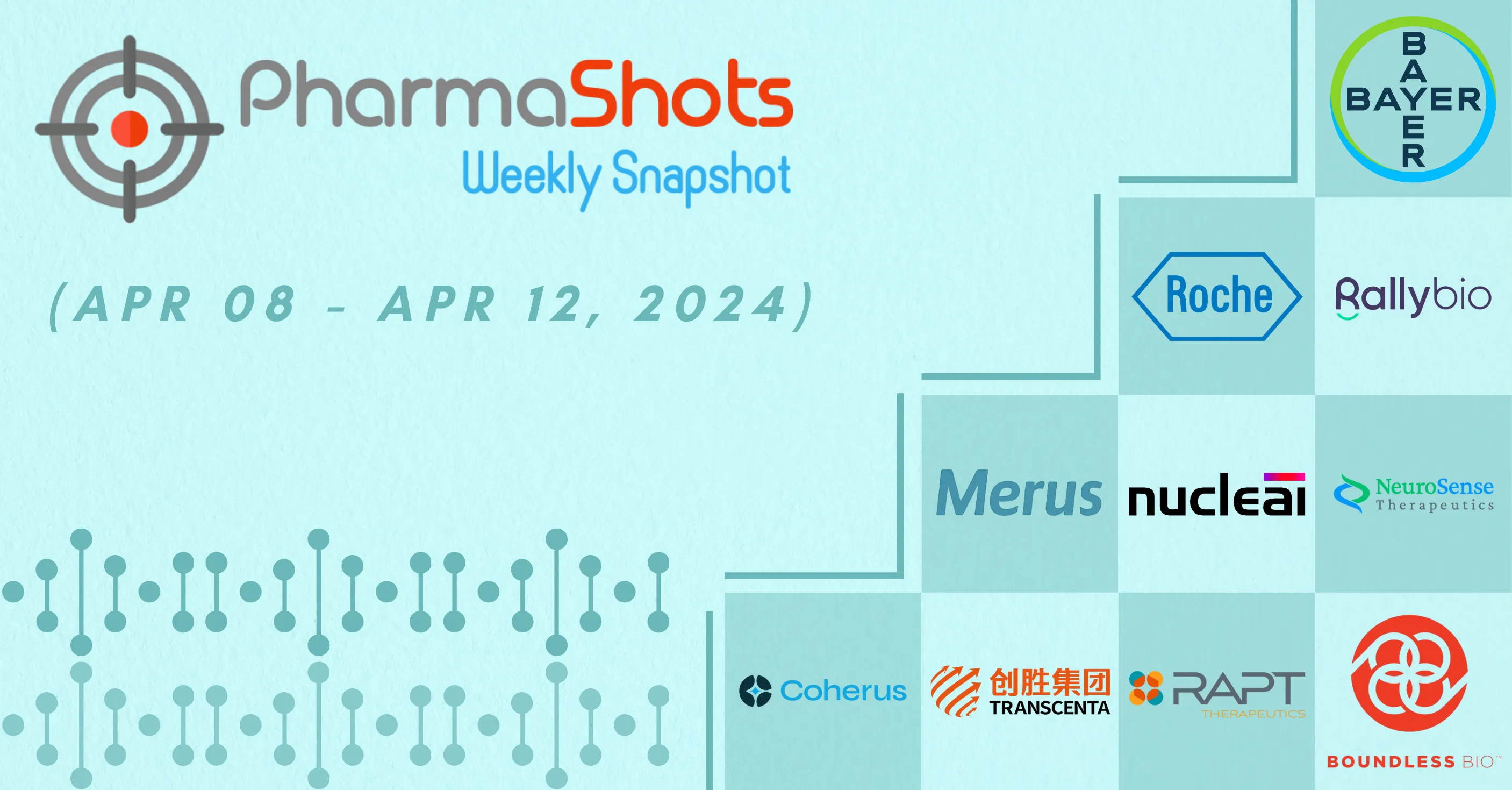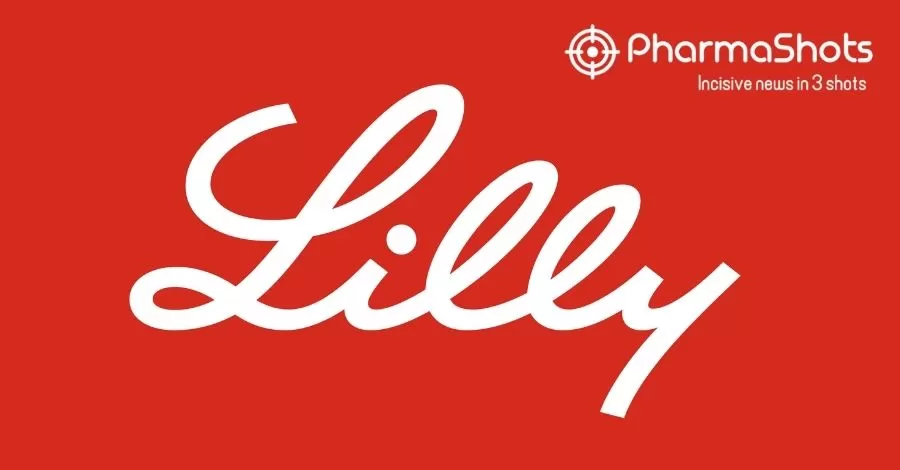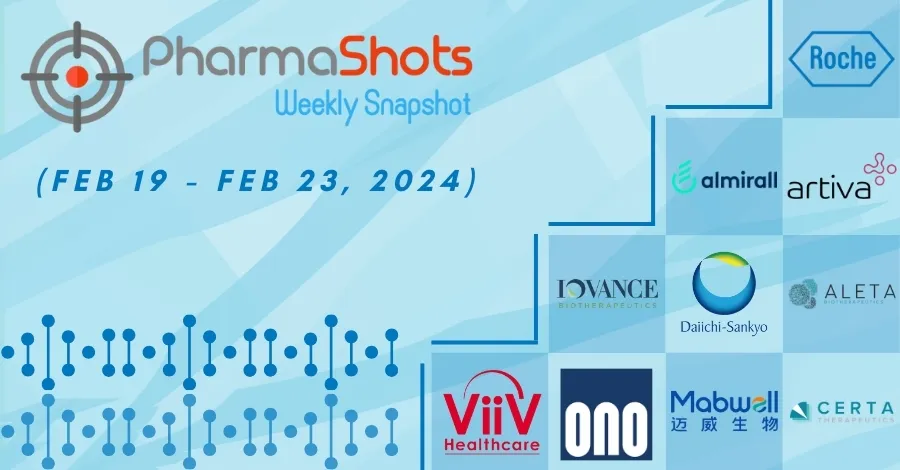
Strengthening Animal Care with the One Health Policy (Animal Health)
Shots:
-
With 2.7B cases of illness and 2.5M deaths annually, containing zoonotic diseases remains a major challenge for researchers, scientists, and healthcare professionals. Diseases originating from animals account for an alarming 60 percent
-
Animal health fosters a holistic approach to disease prevention in animals by containing unforeseen diseases beforehand. The animal health industry was valued at $58.66B in 2022
-
The article covers multiple aspects of animal health, its importance, the one health initiative by the UN, major challenges, and key companies involved in the industry
With the population spurring at an alarming rate, the insatiable needs of humans keep spiking, and ensuring animal health at such times becomes a pressing priority. The dependence of humans on animals is pretty much evident from history. Humans rely heavily on animal-source foods as they are rich in protein and micronutrients. Initially, humans domesticated animals and later used them for livestock, and gradually from being a source of food, animals became a way of livelihood. Progressively, animal life has been so deeply infused in our livelihood that it is now almost impossible to sustain ourselves without them. By ensuring good health for animals, we can have good nutrition for ourselves and at the same time, contain a disease outbreak beforehand. The animal health industry fosters the staggering need for nutrition and disease prevention by leveraging advanced technologies and innovations. In 2022, the global animal health market was around $58.66B and envisages a CAGR growth of 8.8 percent from 2023 to 2030 year over year. The article focuses on the importance of animal health and highlights key aspects like nutrition, global initiatives, international organization, major challenges, and key players involved in ensuring animal health
What exactly does animal health mean?
Unlike human health, which integrates the aspects of physical, mental, and social well-being, animal health crudely means the absence of diseases in animals. With nourished animal health comes a strengthened economy, flourishing local communities, and improved health of vulnerable populations. The high dependency of humans on animals, whether it is for nutrition or seeking a companion animal confirms the fact that animal health is something that cannot be undermined.
Why is Animal Health Important?
Ensuring the optimum health of animals is important for several reasons. Animal health may directly or indirectly affect the lives of individuals and cause an imbalance in nature. Mentioned below are some key features that highlight the significance of animal health.
-
Disease Prevention: Diseases originating from animals account for 60 percent. Ensuring the health of animals will safeguard ours. Zoonotic diseases are responsible for 2.7B cases of illness and 2.5M deaths annually. Apparently, by studying and researching animal health, many breakthrough discoveries have been possible in the healthcare industry, that helped contain several global epidemics
-
Balance in Nature: Each species must flourish in good health to maintain the proper balance in the ecosystem. Every single species plays a significant role in the environment that cannot be replaced by any other species. To maintain an equilibrium in nature, it becomes important that we foster new-age technologies to benefit the environment by ensuring animal health
-
Ensuring Proper Nutrition: Animal-derived foods like dairy products, meat, eggs, and fish are amazing sources of proteins and other nutrients. To ensure that quality products are obtained from animals, the animal health industry must be prioritized. We have covered the aspect of nutrition, explaining the global dependence in another section right below.
-
Due Care for Companion Animals: Companion animals are treated more like a family in almost every household. Due to the shared bond of amiable affection, people now provide their companion pets with the best facilities in healthcare and food.
-
Source of Economy: Animal-based products are commercially available in the global market and serve as a source of economy for millions of people. Dairy products, meat, eggs, wool, fish, and others provide a livelihood to a significant population globally. The global market for animal-source food in 2022 stood at $563B and is envisioned to reach $839B by 2032
-
Emotional Support Animals: Emotional support animals have proven to be a great help for patients dealing with mental health issues such as PTSD, panic attacks, anxiety, and depression. Commonly dogs and cats are categorized as emotional support animals, other animal species are also added to the list unless they are not threats to society. To own an emotional support animal, the person must have a mental disability and an ESA letter issued by a psychologist, psychiatrist, physician, or a qualified health professional
Nutritional Aspect of Animal Health
Micronutrients like vitamin A, vitamin B12, riboflavin, zinc, calcium, and iron are crucial for the growth and development of children. Deficiency of these micronutrients may lead to poor growth and cognitive impairment. To ensure a continuous supply of animal-based products, animals must be in good health. People heavily rely on meat and dairy products to meet their daily dietary intake. The average per capita consumption of meat accounted for 35.1 KG rwt in 2022. The numbers are anticipated to touch a worrisome threshold of 35.4 KG rwt in 2027.


One Health Initiative by the UN
In the age of globalization, zoonotic diseases remain one of the major causes of death. The extent to which a zoonotic disease can infect people these days is alarming. It is crucial to prevent and contain an outbreak of a disease before it becomes an endemic or pandemic. One Health integrates multiple disciplines working locally or globally in pursuit of attaining optimal health for people and animals while adopting an eco-friendly approach to the environment. Started by WHO, the initiative unifies multiple aspects of public health, veterinary science, and environmental sectors. Started in 2012, the initiative addresses challenging issues of the environment, disease protection, food safety and security, and more. This holistic approach showcases the interdependence of humans, animals, and the environment.
World Organization for Animal Health (WOAH)
Formerly known as Office International des Epizooties, WOAH is an intergovernmental organization with around 182 member countries focused on preventing and controlling animal diseases. To contain the outbreak of any animal disease, WOAH uses a dedicated interface WAHID that expands to World Animal Health Information Database. The interface is instrumental in providing all the data held within WOAH’s World Animal Health Information System (WAHIS). It leverages the information available from:
-
Real-time updates and follow-up reports submitted by the member countries on the disease events
-
Half-yearly report that describes the situations of WOAH-listed diseases in the member countries
-
Annual reports on animal health, laboratories, and vaccine production facilities
Major Challenges in Animal Health Industry
Like every other industry, animal health is also prone to challenges. Let us address key challenges that the animal health industry face.
-
Lack of funding: The expenditure for market research for the animal health industry is merely 7 percent of that of human health research. To contain zoonotic diseases, it is crucial to allocate a significant number of resources to the animal health industry as both animal as well as human health are interlinked
-
Development of an Effective Animal Health Management System: Framing an effective animal health management system for animals can be circuitous as compared to humans, especially when the majority of livestock animals are unregistered
-
Increasing zoonotic diseases: In the past three decades over 30 human pathogens have been detected, 75 percent of which have originated in animals. Zoonotic diseases are a global concern, especially for the Eastern Mediterranean region that reported maximum emerging zoonotic diseases with alarming fatalities
Key Companies in Animal Health
PharmaShots has prepared an illustrative table showcasing major animal health drugs approved in 2022 and leading companies in the industry (this list is just indicative, not exhaustive).
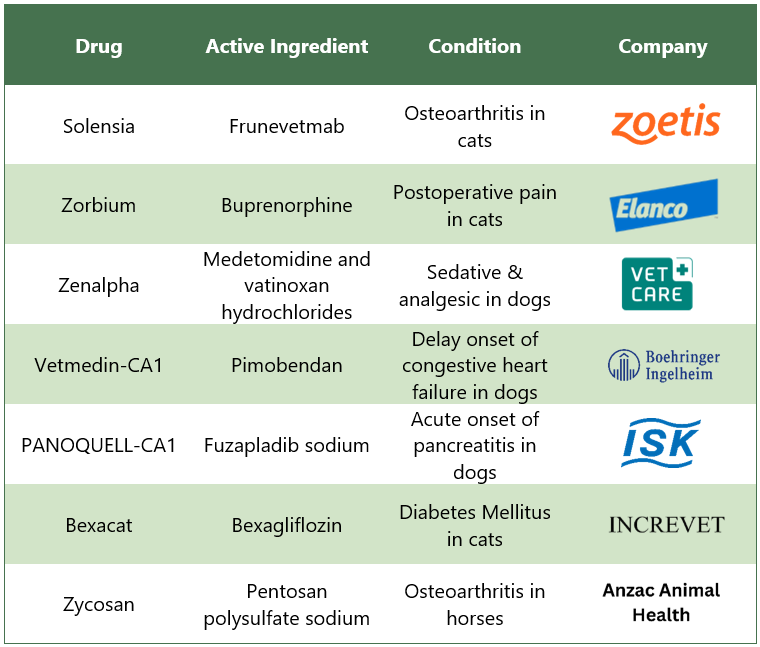
Column 1 depicts drugs, while columns 2, 3, and 4, showcase active ingredients, conditions, and the companies involved
Conclusions & Perspectives
To maintain a healthy balance in nature, equal emphasis must be given to human health, animal health, and the environment. Healthy animals can convert food into valuable products like milk and meat more efficiently. In retrospect to technological advances over decades, animal health companies in developed countries have enhanced husbandries and efficient biosecurity in comparison to underdeveloped or developing countries. Moreover, the dependence of developed countries on animal-source food has been a contributing factor in enhancing the animal health industry in such nations. As a dedicated media house that caters to life science, pharmaceutical, biotech, biopharma, MedTech, and animal health companies, PharmaShots specializes in personalized animal health news, CI insights, and deep-dive disease reports. Contact us at connect@pharmashots.com for more information
References:
Tags

Saurabh is a Senior Content Writer at PharmaShots. He is a voracious reader and follows the recent trends and innovations of life science companies diligently. His work at PharmaShots involves writing articles, editing content, and proofreading drafts. He has a knack for writing content that covers the Biotech, MedTech, Pharmaceutical, and Healthcare sectors.



